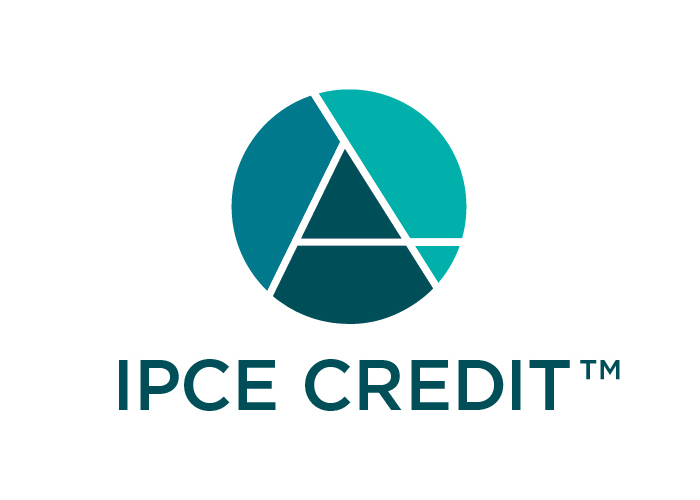Venous thromboembolism (VTE) morbidity, mortality, and impact on the overall quality of life start with timely diagnosis, appropriate initial treatment, and management. Prevention occurs at a primary and secondary level. This program focuses on all the components to manage VTEs at all of these levels to help clinicians effectively manage their patients and reduce preventable harm and corresponding healthcare costs. This program also highlights aspects of the guidelines that can be used daily to help with the management of VTE in daily practice.
Primary Prevention, Initial Treatment & Management of VTE, Secondary VTE Prevention Strategies
Case Time! VTE Prophylaxis Post Hip Replacement
Target Audience
This activity has been designed to meet the educational needs of cardiology and internal medicine, MD, NP/PAs, Nurses, Pharmacists, as well as all healthcare providers involved in managing patients with venous thromboembolism.
Learning Objectives
After participating in this educational activity, participants should be better able to:
- Discuss patient populations that are particularly susceptible to blood clot development, emphasizing the importance of risk assessment and stratification for the primary prevention of VTE and the secondary prevention of recurrent VTE
- Illustrate how to implement evidence-based medicine, clinical guideline statements, and real-world clinical data in clinical practice to improve outcomes for primary prevention of VTE, initial treatment and management of VTE, and the secondary prevention of recurrent VTE
Accreditation and Credit Designation Statements
 In support of improving patient care, this activity has been planned and implemented by Global Learning Collaborative (GLC) and Total CME, LLC. GLC is jointly accredited by the American Council for Continuing Medical Education (ACCME), the Accreditation Council for Pharmacy Education (ACPE), and the American Nurses Credentialing Center (ANCC) to provide continuing education for the healthcare team.
In support of improving patient care, this activity has been planned and implemented by Global Learning Collaborative (GLC) and Total CME, LLC. GLC is jointly accredited by the American Council for Continuing Medical Education (ACCME), the Accreditation Council for Pharmacy Education (ACPE), and the American Nurses Credentialing Center (ANCC) to provide continuing education for the healthcare team.This activity was planned by and for the healthcare team, and learners will receive 1.75 Interprofessional Continuing Education (IPCE) credits for learning and change.
Disclosure of Relevant Financial Relationships
In accordance with the ACCME Standards for Integrity and Independence, Global Learning Collaborative (GLC) requires that individuals in a position to control the content of an educational activity disclose all relevant financial relationships with any ineligible company. GLC mitigates all conflicts of interest to ensure independence, objectivity, balance, and scientific rigor in all educational programs.
The following faculty have reported relationships with ineligible companies:
Bruce L. Davidson, MD, MPH, faculty for this educational activity, received consulting fees from Inari Medical.
Scott Kaatz, DO, MSc, FACP, SFHM, faculty for this educational activity, received research funding from BMS, Bayer, and Janssen; and received consulting fees from Anthos, Inari, Janssen, and Gilead.
Deborah Siegal, MD, MSc, FRCPC, faculty for this educational activity, received honoraria from BMS-Pfizer, AstraZeneca, Servier, and Roche.
Alex C. Spyropoulos, MD, FACP, FCCP, FRCPC, faculty for this educational activity, received research funding from Janssen and AstraZeneca; and received consulting fees from Janssen, AstraZeneca, Regeneron, and Roche.
Alfonso J. Tafur, MD, MS, MBA, RPVI, faculty for this educational activity, received research funding from Janssen, Idorsia, Anthos, BMS, Stago, Biotap, Doansense, Recovery Force, and Novartis; and received consulting fees from Janssen, and Recovery Force.
Victor Tapson, MD, faculty for this educational activity, is an employee of Inari Medical; has an ownership interest in Inari Medical; and received consulting fees from Janssen Pharmaceuticals.Planners and Managers Disclosure List
The following planners/reviewers/managers have disclosed:
William Mencia, MD, FACEHP, CHCP, reviewer for this educational event, has no relevant financial relationships with ineligible companies.
Total CME, LLC, planners, and managers have no relevant commercial relationships to disclose.
All the relevant financial relationships for these individuals have been mitigated.Disclaimer
The views and opinions expressed in this educational activity are those of the faculty and do not necessarily represent the views of GLC and Total CME, LLC. This presentation is not intended to define an exclusive course of patient management; the participant should use their clinical judgment, knowledge, experience, and diagnostic skills in applying or adopting for professional use any of the information provided herein. Any procedures, medications, or other courses of diagnosis or treatment discussed or suggested in this activity should not be used by clinicians without evaluation of their patient's conditions and possible contraindications or dangers in use, review of any applicable manufacturer’s product information, and comparison with recommendations of other authorities. Links to other sites may be provided as additional sources of information. Once you elect to link to a site outside of MedEd On The Go you are subject to the terms and conditions of use, including copyright and licensing restrictions, of that site.
Reproduction Prohibited
Reproduction of this material is not permitted without written permission from the copyright owner.Provider(s)/Educational Partner(s)
Jointly provided by Global Learning Collaborative (GLC), Duke Heart, and Total CME, LLC.
Commercial Support
This activity is supported by an independent educational grant from Janssen Scientific Affairs, LLC.
System Requirements
- Supported Browsers (2 most recent versions):
- Google Chrome for Windows, Mac OS, iOS, and Android
- Apple Safari for Mac OS and iOS
- Mozilla Firefox for Windows, Mac OS, iOS, and Android
- Microsoft Edge for Windows
- Recommended Internet Speed: 5Mbps+
Publication Dates
Release Date:
Expiration Date:


